
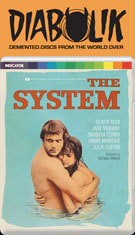

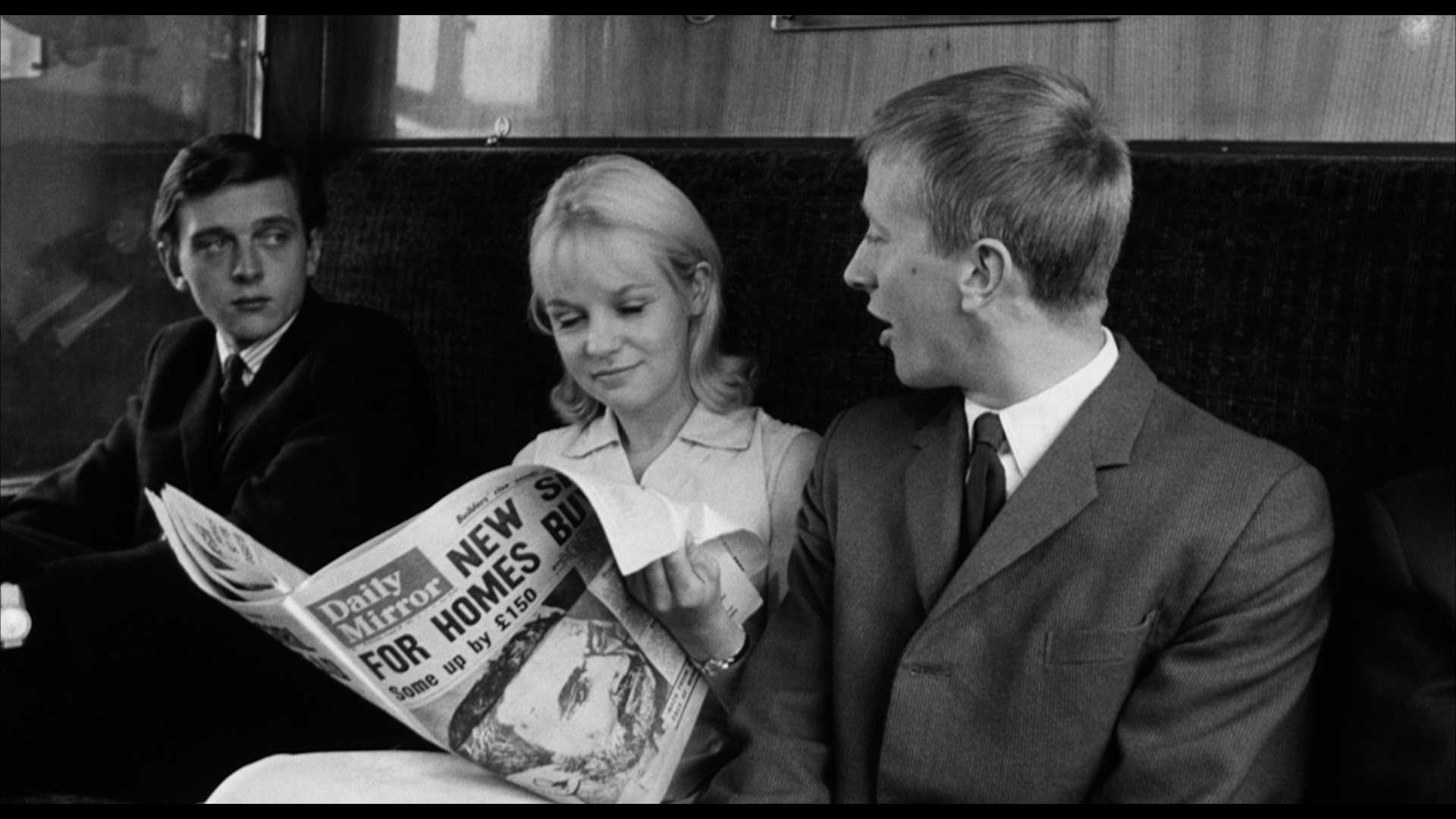 known to American audiences as
known to American audiences as 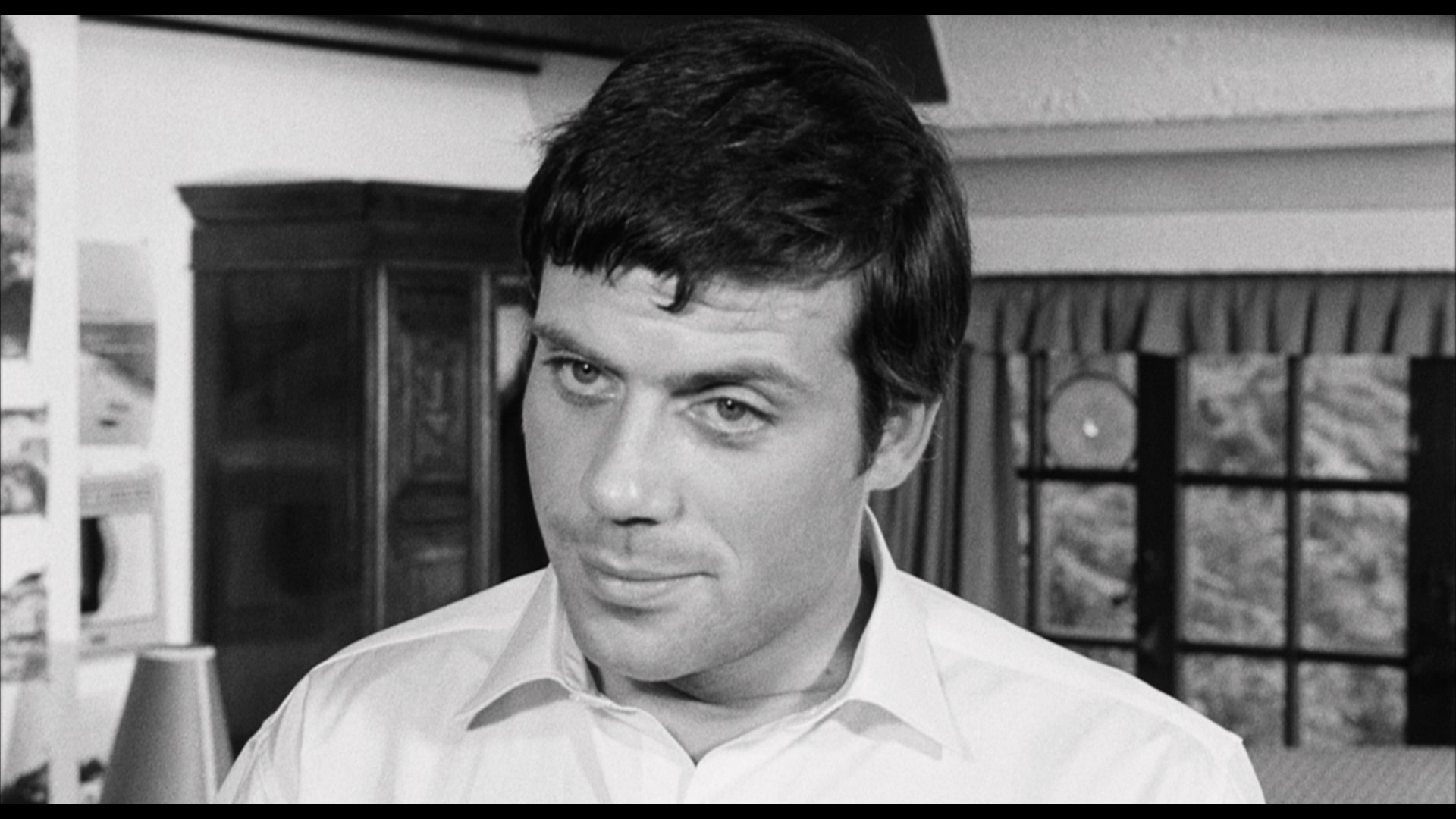 The Girl-Getters thanks to its AIP release two years after its U.K. debut, The System was one of the earlier features from the divisive English director Michael Winner, who was just coming off of the underrated crime film West 11 and would make more of a splash soon after with two subsequent films, I'll Never Forget What's'isname and The Jokers, both starring this film's leading man, Oliver Reed. Now Winner is best known for his colorful, politically outspoken TV personality and his iconic action films like Death Wish and The Mechanic as well as lurid offerings like The Sentinel and Scream for Help. However, this is a reminder of his more down to earth roots when he proved he could do kitchen sink realism with the best of them-- especially with the secret weapon of cinematographer Nicolas Roeg (in between Masque of the Red Death and Fahrenheit 451), who was about to become a major director in his own right.
The Girl-Getters thanks to its AIP release two years after its U.K. debut, The System was one of the earlier features from the divisive English director Michael Winner, who was just coming off of the underrated crime film West 11 and would make more of a splash soon after with two subsequent films, I'll Never Forget What's'isname and The Jokers, both starring this film's leading man, Oliver Reed. Now Winner is best known for his colorful, politically outspoken TV personality and his iconic action films like Death Wish and The Mechanic as well as lurid offerings like The Sentinel and Scream for Help. However, this is a reminder of his more down to earth roots when he proved he could do kitchen sink realism with the best of them-- especially with the secret weapon of cinematographer Nicolas Roeg (in between Masque of the Red Death and Fahrenheit 451), who was about to become a major director in his own right. 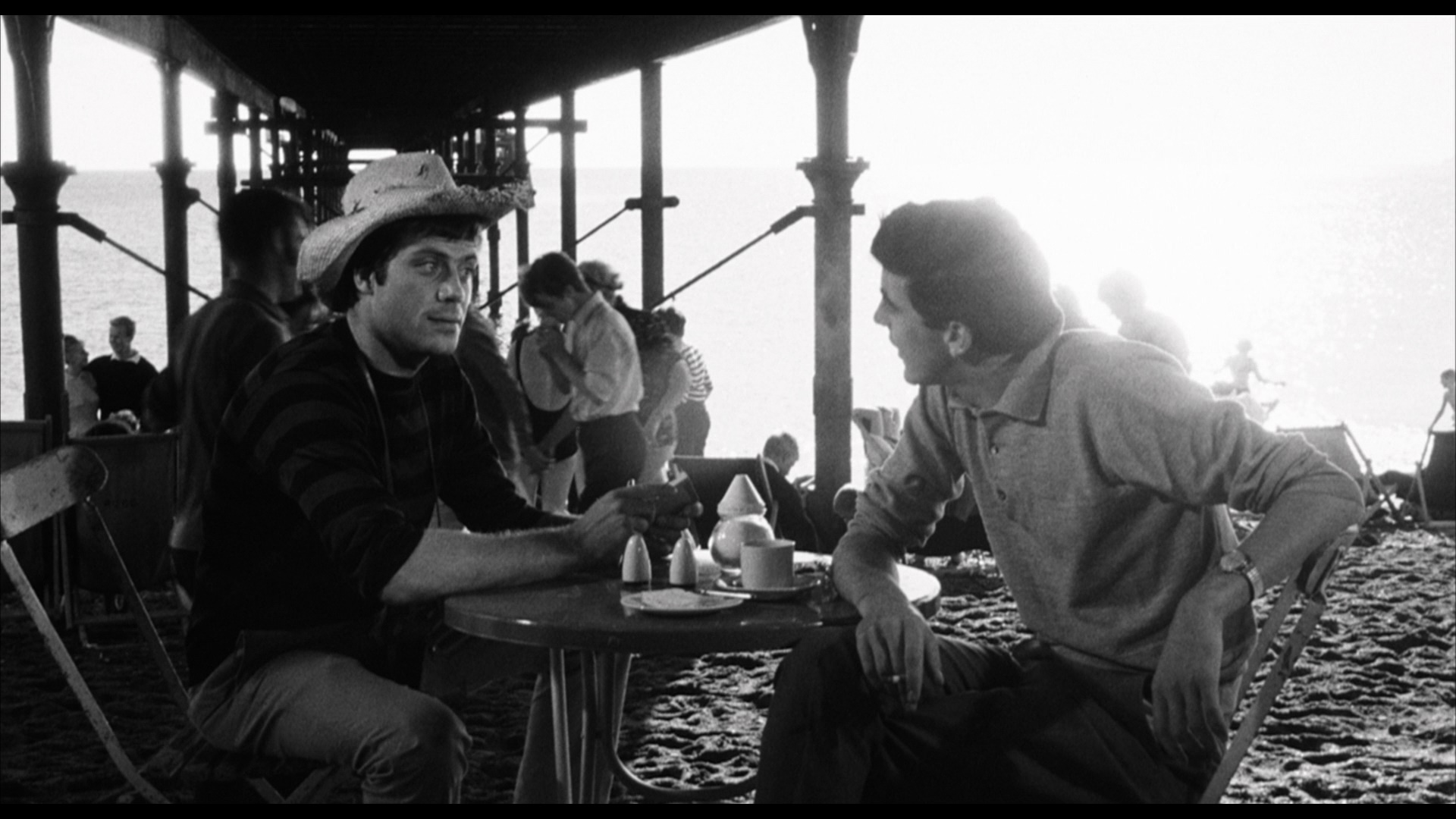 well-off model Nicola (Hands of the Ripper's
well-off model Nicola (Hands of the Ripper's 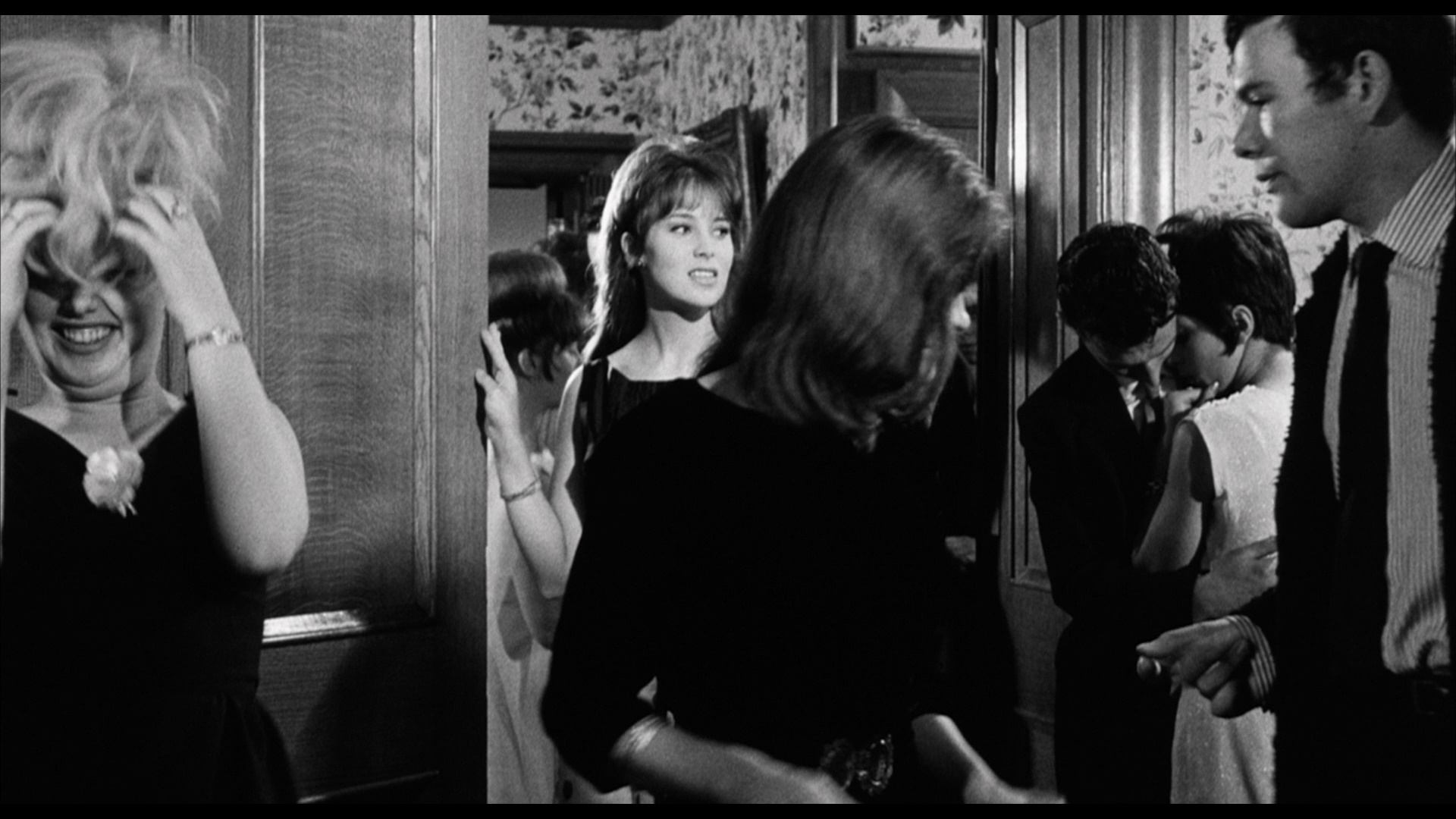 Merrow), who is far from naive and exposes a flaw in his technique.
Merrow), who is far from naive and exposes a flaw in his technique. 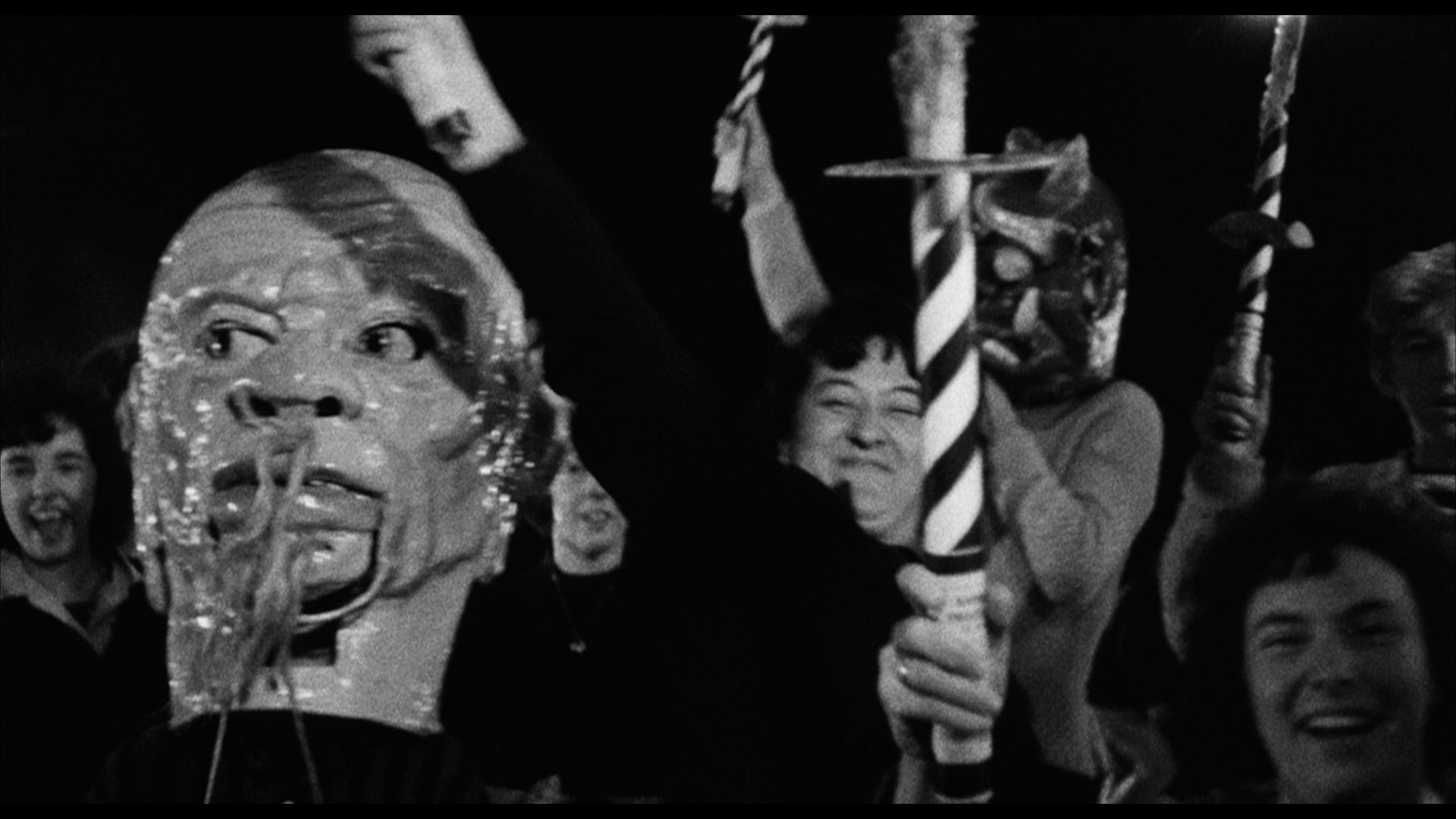 "Getting the Girl" (17m52s), starts off with her accidental entry into acting doing backstage
"Getting the Girl" (17m52s), starts off with her accidental entry into acting doing backstage 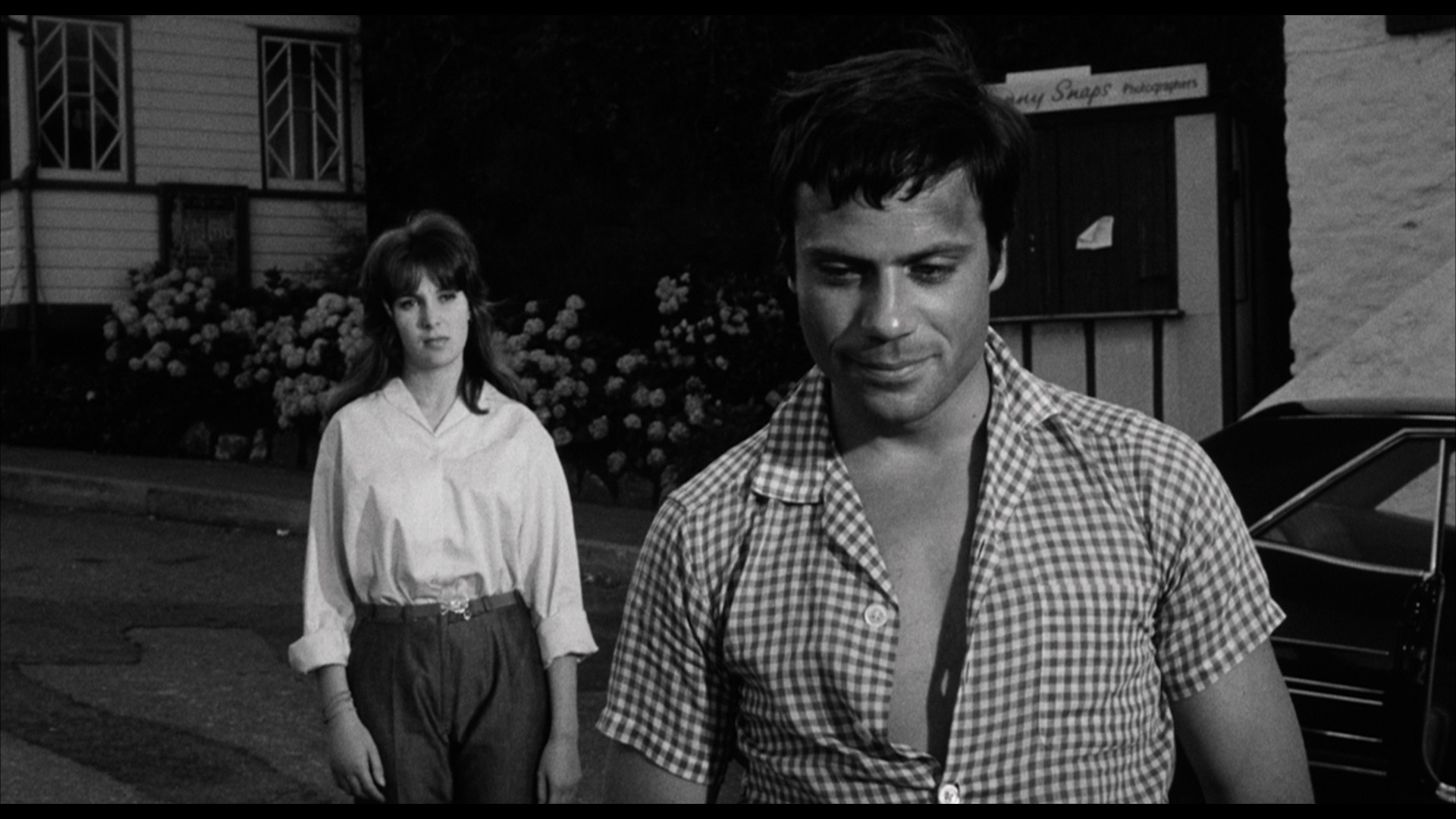 work and explains how she ended up starring in this film early in her screen career, with particularly high praise of Roeg and, not surprisingly, some mixed feelings about the hard-drinking Reed. Similarly, actor John Porter-Davison calls the experience wild and completely booze sodden in "Drinking and Dancing" (5m39s) to such an extent it's a wonder he's still alive, and actor Jeremy Burnham focuses more on Winner in "Fun and Games" (3m50s) for a brief reminiscence about the tennis scene. Finally the disc closes out with an image gallery of 23 stills and promotional items, and "Haunted England" (23m31s), a really enjoyable 1961 color travelogue by Winner with David Jacobs narrating a silly tour of supernatural encounters around the English countryside through the centuries involving the Devil's Chair, spectral false teeth, and much more. The 3,000-unit limited edition also comes with the expected hefty insert booklet featuring liner notes by Andy Miller, samples from Winner's autobiography, sample critical reactions from the original release, and Vic Pratt notes on the short film.
work and explains how she ended up starring in this film early in her screen career, with particularly high praise of Roeg and, not surprisingly, some mixed feelings about the hard-drinking Reed. Similarly, actor John Porter-Davison calls the experience wild and completely booze sodden in "Drinking and Dancing" (5m39s) to such an extent it's a wonder he's still alive, and actor Jeremy Burnham focuses more on Winner in "Fun and Games" (3m50s) for a brief reminiscence about the tennis scene. Finally the disc closes out with an image gallery of 23 stills and promotional items, and "Haunted England" (23m31s), a really enjoyable 1961 color travelogue by Winner with David Jacobs narrating a silly tour of supernatural encounters around the English countryside through the centuries involving the Devil's Chair, spectral false teeth, and much more. The 3,000-unit limited edition also comes with the expected hefty insert booklet featuring liner notes by Andy Miller, samples from Winner's autobiography, sample critical reactions from the original release, and Vic Pratt notes on the short film.Reviewed on October 5, 2019.
![]()